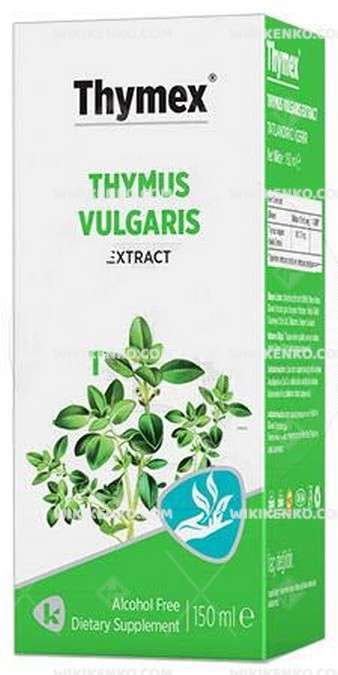Description
Thyme (Thymex Thymus Vulgaris): A Brief Introduction
Thyme, scientifically known as Thymus vulgaris, belongs to the Lamiaceae (mint) family. This short, bushy herb is indigenous to southern Europe but can be found thriving across the globe. Primarily recognized for its culinary applications, thyme adds a distinctive flavor to dishes. Beyond its culinary allure, thyme has earned a reputation for its potential medicinal properties, which include anti-inflammatory, antimicrobial, antioxidant, and other therapeutic effects.
Crucial Active Ingredients
The extract of Thymus vulgaris boasts a volatile oil, characterized by its yellow hue, with a content ranging from 1% to 2%. This volatile oil is replete with essential compounds, including phenolic compounds, terpenoids, flavonoids, steroids, alkaloids, tannins, and saponins. Among these, thymol takes center stage as a potent phytonutrient—a naturally occurring chemical in plants. Thymol is believed to harbor a multitude of beneficial properties, such as antioxidative, anti-inflammatory, pain-relieving, antimicrobial, and even potential antitumor effects.
Uses
Thymex finds its roots in traditional medicine, where thyme has been deployed for an extensive array of health conditions. The active components within thyme have led proponents to consider it a natural remedy for various diseases and health issues. However, it’s worth noting that while thyme holds promise, scientific evidence supporting its medicinal effects remains somewhat limited.
Thyme Side Effects
Thyme, when consumed in standard food amounts, is generally considered safe. Nonetheless, some individuals may experience side effects when using thyme as a supplement or in substantial quantities. These side effects can manifest as upset stomach, headaches, dizziness, or skin irritation. In rarer instances, allergic reactions may occur, leading to symptoms such as hives, skin rash, watery eyes, diarrhea, nausea, or abdominal pain. If any of these symptoms emerge following thyme consumption, it is advisable to discontinue use and seek prompt medical attention.
Precautions
Supplement use, including thyme-based products, should be approached with individualization and consultation with a healthcare professional, such as a registered dietitian, pharmacist, or healthcare provider. It is vital to emphasize that supplements are not intended to treat, cure, or prevent diseases. When selecting supplements, opt for those tested by reputable third-party organizations like USP ConsumerLab or NSF.
Nevertheless, even third-party testing doesn’t guarantee universal safety or efficacy. Consequently, engaging in a dialogue with a healthcare provider regarding supplement usage and potential interactions with other medications or supplements is imperative.
Thyme as a Treatment for Respiratory Infections
Thyme has a rich history of traditional use in the treatment of respiratory infections. Its properties include antispasmodic and expectorant effects, making it a valuable ally in calming coughs and aiding the expulsion of bronchial mucus. Thyme tea, in particular, is esteemed as a natural remedy for respiratory infections, particularly those caused by bacteria resistant to multiple drugs.
This herb’s natural expectorant qualities facilitate the breakup and elimination of mucus, coupled with effective cough suppression. Thyme oil, too, is recognized for its ability to alleviate congestion and combat infections in the chest and throat, commonly associated with colds and coughs. However, a crucial note of caution: before embarking on thyme-based treatment for respiratory infections, consultation with a healthcare professional is strongly advised.
Recommended Dosage of Thyme for Respiratory Infections
Although there are no universal dosage guidelines for thyme, one suggested dose for thyme tincture is typically 1/3 to 1 teaspoon, administered three times daily. It’s essential to emphasize that while thyme tincture is generally safe, pure thyme oil should never be ingested, as it may induce vomiting, dizziness, and breathing difficulties.
As a best practice, always consult a healthcare professional before incorporating supplements or herbal remedies into your healthcare regimen.
Conclusion
In conclusion, Thymex Thymus Vulgaris Herbal Syrup harnesses the potential of thyme, a versatile herb, to offer a natural approach to health and well-being. While thyme presents promising properties, it’s crucial to exercise caution, adhere to recommended dosages, and seek professional advice when considering thyme-based treatments. By striking a balance between tradition and modern healthcare practices, Thymex contributes to the rich tapestry of natural remedies available to us today.











Reviews
There are no reviews yet.